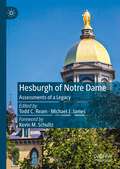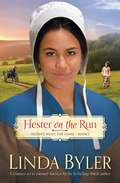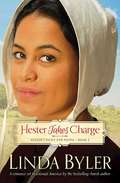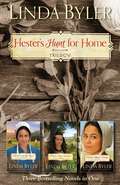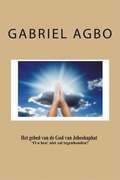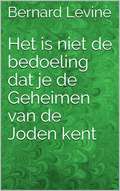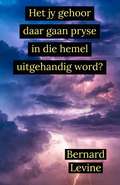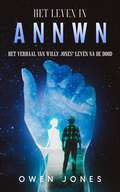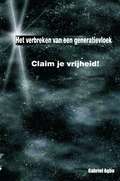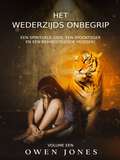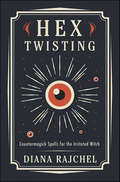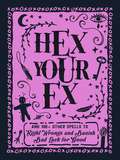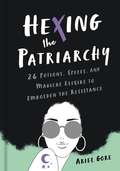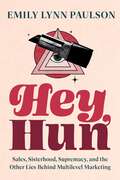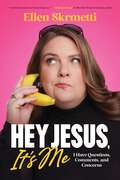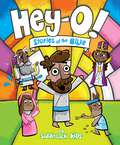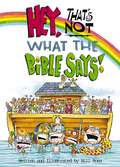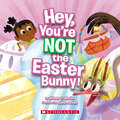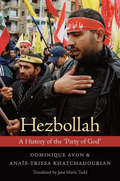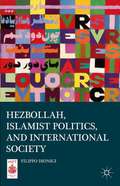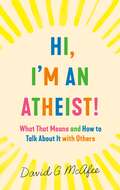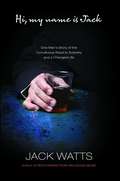- Table View
- List View
Hesburgh of Notre Dame: Assessments of a Legacy
by Todd C. Ream Michael J. JamesThis volume is the first comprehensive assessment of the life and legacy of Father Theodore Hesburgh (1917–2015), an educator, priest, public servant, and long-serving President of the University of Notre Dame. Despite being a transformative figure in Catholic higher education who led the University of Notre Dame for 35 years and wielded influence with US presidents on civil rights and other charged issues of his era, secular accounts of history often neglect to assess the efforts of religious figures such as Hesburgh. In this volume, the editors and their authors turn a fair-minded but critical eye to the priest's record to evaluate where he fits into the long development of Catholic higher education and Catholics' role in American public life.
Hester on the Run: Hester's Hunt for Home, Book One
by Linda BylerThe setting is the beginning of an Amish settlement in colonial America in the forests of eastern Pennsylvania. There, a young Amish couple, Hans and Kate Zug, are in their ninth year of marriage, still waiting to have a child. Then, one April morning, Kate finds a Native infant, wrapped in deerskin and placed next to the spring where she went to fill her water bucket. Kate and Hans cherish Hester, despite the pointed question of Hans’s mother--"What makes you think you can raise her Amish, with her Indian blood?” Struck by his daughter’s unusual beauty, Hans insists on choosing the fabric for her handmade dresses. And when his and Kate’s first son is born a year later, Hans despairs of his homely face and nearly bald head. In fact, Hans continues to give his fullest attention and affection to Hester, even as eight more children are born to him and Kate. Hester glows as she grows, an unmistakable beauty both inside and out, and charms her adopted Amish community. But then, an elderly Lenape woman hands Hester a package of medicinal herbs to rout an infection that is threatening Kate’s life. A trust passes between the wizened and the youthful Native women. In that moment, Hester recognizes that she belongs to two worlds, both intent on possessing her. When Amish Indian Hester realizes that she must leave her tension-filled home for her sake and her father’s, she takes only two possessions: the leather-bound book of remedies left for her by the old Lenape woman and her memories of the Amish ways.
Hester Takes Charge: Hester's Hunt for Home, Book 3
by Linda BylerHester, the startlingly beautiful Native American who was rescued as an infant by an Amish couple, now lives in downtown Lancaster, Pennsylvania. She shares a house with Bappie King, another Amish woman, living their independent lives in the fast-growing mid-18th-century city. Bappie runs a highly successful stand at the downtown farmers market; Hester is Bappie’s assistant when she isn’t out in the city nursing desperately sick children and their impoverished parents with her tinctures, teas, and rubs.And then one day, Noah comes back; Noah, the first child born to Hans and Kate Zug, the Amish couple who had welcomed Hester during their childless years.Both Hester and Noah are refugees from this Amish family gone awry. Both were victims of Hans’ deep attraction to the lovely Hester. Two hurt souls, they have each had their own adult troubles. Noah left his family and the Amish to join the War. Hester is the widow of William King, an Amish man who was determined to possess his wife and dictate her life.When Noah invites Hester to join him on a visit to their childhood home, Hester can no longer ignore her buried anger at her adopted father or her bitterness toward Annie, his second wife. Nor can Hester deny the tempting thrill of spending time with the steady but sensitive Noah, who since childhood showed special care for Hester.Hester and Noah both know that the visit home will force them to face blistering questions: Can they possibly forgive their ill father, Hans, for his misplaced love for Hester and his utter neglect of Noah? Can Hester and Noah risk marriage, especially if they can’t forgive Hans? Can Hester trust herself-and Noah-enough to marry again after her failed marriage to William?Skyhorse Publishing, as well as our Arcade, Yucca, and Good Books imprints, are proud to publish a broad range of books for readers interested in fiction-novels, novellas, political and medical thrillers, comedy, satire, historical fiction, romance, erotic and love stories, mystery, classic literature, folklore and mythology, literary classics including Shakespeare, Dumas, Wilde, Cather, and much more. While not every title we publish becomes a New York Times bestseller or a national bestseller, we are committed to books on subjects that are sometimes overlooked and to authors whose work might not otherwise find a home.
Hester's Hunt for Home Trilogy: Three Bestselling Novels in One
by Linda BylerIn colonial America, a Native American orphan raised among the Amish explores her identity, torn between two cultures and unsure of where she belongs. When she's forced to leave everything behind and forge her own path, where—and with whom—will Hester choose to make her new home?Hester on the Run, Book 1: One April morning, an Amish couple finds a Native American infant, wrapped in deerskin and placed next to the spring where they gather water. Kate and Hans adopt the child and name her Hester, despite the criticism of certain community members. Hester glows as she grows, an unmistakable beauty both inside and out, but begins to realize she doesn't quite fit in. An encounter with a Lenape medicine woman gives her a glimpse of her undiscovered heritage. When her own father becomes a threat, Hester is forced to flee from the Amish community, the only home she has ever really known. Which Way Home?, Book 2: Twice rescued—first by matronly Native women who find her unconscious in the woods and then by a boy in downtown Lancaster where she'd been left for dead by the dreaded Paxton boys—Hester finds herself wondering if she will ever find a safe haven. When an Amish man from her past reappears, it seems like destiny, but William King is more in love with the way she looks than with her heart and mind. When a Native American man makes a proposal to Hester, she is perplexed more than ever. Where will her heart lead her?Hester Takes Charge, Book 3: Now widowed and living in downtown Lancaster, Pennsylvania, Hester is startled by the unexpected appearance of Noah, the firstborn son of her adoptive parents. Their father's misplaced love for Hester and utter neglect of Noah drove each of them away from their Amish family. When Noah suggests they return to their childhood home to see their ill father, Hester can no longer ignore her buried anger and bitterness. Can they possibly forgive Hans? Can Hester trust herself—and Noah—enough to marry again?Skyhorse Publishing, as well as our Arcade, Yucca, and Good Books imprints, are proud to publish a broad range of books for readers interested in fiction—novels, novellas, political and medical thrillers, comedy, satire, historical fiction, romance, erotic and love stories, mystery, classic literature, folklore and mythology, literary classics including Shakespeare, Dumas, Wilde, Cather, and much more. While not every title we publish becomes a New York Times bestseller or a national bestseller, we are committed to books on subjects that are sometimes overlooked and to authors whose work might not otherwise find a home.
Het gebed van de God van Jehoshaphat 'O u hen' niet zal tegenhouden?
by Gabriel AgboHet gebed van de God van Jehoshaphat 'O uhen' niet zal door Gabriel AgboEvery-slag in ditleven is winnable tegenhouden! Alle slagen diewij hetzij als individuen of groepen onder ogen zien worden vertegenwoordigd in driecategorieën – oorlogen, ziekten en hongersnood.De oorlogen vertegenwoordigen zowel fysieke alsgeestelijke opposities, slagen en conflicten die wijdagelijks gezien en Elke slag in dit leven is winnable! Alle slagendie wij hetzij als individuen of groepen onder ogen zien worden vertegenwoordigd in driecategorieën – oorlogen, ziekten enhongersnood. De oorlogen vertegenwoordigenzowel fysieke als geestelijke opposities, slagenen conflicten die wij dagelijks gezien en=. Deziekten omvatten alle ziekten, besmettingen;geneesbare en ongeneeslijke ziekten. Dan,impliceren de hongersnood of de droogte aleconomisch, financieel gebrek en andereuitdagingen. En in dit boek, tonen wij effectiefaan dat het mogelijk altijd om te komen doordeze uitdagingen is te gaan en uitzegevierend. Hier, zult u vastgestelde en geteste beginselenvinden die u permanent aan de zegevierendekant zullen zetten. Zij worden inderdaadgetest, goddelijk, universeel en eeuwig. Zijkunnen niet ontbreken! Hier zult u tien goed-geladen en krachtige hoofdstukken vinden: Hetgebed van Jehoshaphat, God van Hemel enAarde, het is Onze Overerving, Oorlog, Ziektenen ziet de Hongersnood, hoe zij ons, u zulttegenhouden hen niet beloont? Bang of geenOntmoedigd ben; Het is niet Uw Slag, Maartuit en neemt Uw Standpunten, en Macht vanLof in. Wij hebben ook reeks krachtigegebedpunten die directe resultaten aan het eind van elk hoofdstuk zullen brengen.
Het is niet de bedoeling dat je de Geheimen van de Joden kent
by Bernard Levine L. N.Wist je dat Joden op de sabbat geen wc-papier mogen scheuren? Waarom kunnen joodse vrouwen geen Bijbel lezen? Heb je gehoord dat er een speciale Coca-Cola is gemaakt speciaal voor Joden? Wat is de achternaam van Jezus? Welke letter van het alfabet staat ondersteboven in de Bijbel? Waarom eten joden geen kaas-burgers? Wat is er zo anders aan Joodse geslachtsgemeenschap? Waarom dragen joodse vrouwen pruiken? Is er een speciaal gebed dat de Joden zeggen voordat ze naar het toilet gaan? Het grootste deel van het Oude Testament wordt niet bestudeerd door Joden ... waarom? Wist je dat Joden hun eigen soort spek hebben? Waarom mogen Joodse vrouwen mannen niet hun ellebogen of knieën laten zien? Wat is Gods naam die in de meeste Bijbels is weggelaten? Kan een Jood een tatoeage hebben? Wanneer slapen Joden buiten? Is het waar dat er geen scheldwoorden zijn in het Hebreeuws? Hoe moet je een jood over Jezus Christus vertellen? Waarom kunnen Joden hun eigen woorden niet reciteren en gebruiken als ze bidden? Je zult absoluut verrast zijn, misschien zelfs geschrokken als je ontdekt wat er echt gebeurt in de Joodse wereld.
Het jy gehoor daar gaan pryse in die hemel uitgehandig word?
by Bernard LevineAs God al die glorie wat op ons wag aan ons bekend moet maak, sal dit ons verstand te bowe gaan. Watter pryse sal jy in die hemel ontvang? Gaan jy 'n prys ontvang? As jy die Here Jesus getrou gedien het, sal hierdie 'n tyd van groot lofprysing wees omdat jy wonderlike belonings sal ontvang.
Het Leven in Annwn: Het Verhaal van Willy’s Leven In de Hemel (Annwn-Hemel #2)
by Owen JonesHet Leven in Annwn Het Verhaal van Willy’s Leven In de Hemel Het Leven in Annwn vervolgt precies waar Een Nacht in Annwn ophield. Willy is overgegaan en hij is eindelijk bij de voruw die hij een decennium of meer heeft gemist, zijn geliefde Sarah. Maar meteen van het begin is het leven in Annwn, het oeroude Welshe woord voor de Hemel, niet wat hij had verwacht gedurende zowat zijn hele leven op Aarde, of De Oppervlakte, zoals zij het noemt, daar Annwn ondergronds is. Zijn eerste verrassing komt wanneer Sarah hem naar een herberg brengt om bij te komen van de beproeving van zijn begrafenis, maar daar houdt het niet op. Elke ‘dag’ brengt nieuwe verrassingen, tot dat wat mysterieus De Blokkering wordt genoemd, wegvalt en hij het Leven Na de Dood ervaart zoals het echt is. Het Leven in Annwn is een varrassing op zichzelf, maar het is ook een komische kijk op een alternatieve werkelijkheid die wel eens dichter bij De Waarheid zou kunnen liggen dan wat u ooit hebt gelezen! Het Leven in Annwn moet je lezen, want het zou de manier waarop u de dingen bekijkt voor atijd kunnen veranderen.
Het verbreken van een generatievloek: Claim je vrijheid!
by Gabriel Agbo Teresa JongDit boek zal u de ogen openen voor de gevolgen van alle daden die onze Lotsbestemming bepaalt, zelfs die van onze kinderen en onze ongeboren kinderen. Het onderwerp van vloeken is lang genegeerd en we vonden het nodig om het hier te aan de orde te stellen. We zullen beginnen met in de Schriften te duiken om te kijken wat God te zeggen heeft over vloeken, hoe ze werken en hoe we vrij van ze kunnen komen. Generatievloeken zijn zo belangrijk dat God ze in de Tien Geboden heeft laten opnemen. Zo vele mensen zijn gebonden door de Vijand met ondefinieerbare en ongeziene middelen. In deze studie zullen we leren hoe we die ketenen kunnen verbreken die oorspronkelijk bij de Vijand vandaan komen. We zullen dieper onderzoek doen naar gebieden zoals afgoderij (inclusief Halloween), immoreel gedrag, verraad, stelen, moorden, etc. Ik geloof dat als u dit boek leest en de waarheid ervan onderzoekt, dat u dan de neiging zult krijgen om uzelf te onderzoeken en moeite zal gaan doen om een heilig leven te gaan lijden. Is het niet voor uzelf, dan wel voor uw kinderen en de generaties die nog zullen moeten komen. Ik wil u vragen om dit te lezen met een open hart. Dat God u mag zegenen tijdens het lezen en dat uw begrip zich mag opscherpen tot wat er werkelijk om u heen gaande is.
Het Wederzijds Onbegrip: Een Spirituele Gids, Een Spooktijger en Een Beangstigende Moeder! (De Megan Reeks #1)
by Owen Jones Corentin ColangeloMegan is een jong meisje van twaalf. Verlegen, maar met een open geest ... Verkent ze de wereld om haar heen op een manier, waarvan anderen zelfs niet kunnen dromen dat het mogelijk is. Laat jou leiden door Megan en haar Spirituele Gids, genaamd Witte Veder, die haar met een frisse blik de spirituele wereld zal laten kennismaken. Welke invloed heeft zij op de spirituele wereld en hoe beïnvloedt het haar? Je zal het snel weten bij het openslaan van het boek. Veel leesplezier!
Hex Twisting: Countermagick Spells for the Irritated Witch
by Diana Rajchel“With techniques from tarot to smoke cleansing, from unhexing your hearth to handling hired spirits, help yourself with this handy guide to counter curses.” —Amy Blackthorn, author of Sacred SmokeEven if you’re the most mild-mannered practitioner who sticks to personal development magick, you can still end up getting energetically attacked. Hex Twisting is the key to countering any curse or hex cast your way. Providing a variety of techniques to defend yourself, this indispensable guide helps you drive hurtful magick out of your home, trap malevolent spirits, and more.Diana Rajchel has spent years handling psychic attacks, ancestral injuries, and work-for-hire hauntings. She carefully studied how each one worked, and now she passes that knowledge to you through this book’s powerful collection of exercises, tips, and tools. Discover how to diagnose, recover from, and prevent jinxes, hexes, crosses, and curses. Explore countermeasure recipes, reversal spells, and cleansing rituals. Whatever is after you, this book can help you stop it.“The book you want, but didn’t know you needed. Not only does Diana break down questions to ask along the way, but she also encourages readers to look more closely at their lives and learn to trust what they know before they step into action. After all, no curse is unbreakable, she reminds us.” ―Irisanya Moon, author of Reclaiming Witchcraft“Powerful, informative, and witty, this book addresses complex subjects with clarity and practical, experience-based wisdom to offer workable solutions to combat the turmoil of hexes, curses, troublesome spirits and so much more. Diana Rajchel has gifted the witchcraft community with an invaluable guide that should be a must-read for all magical practitioners.” ―Michael Furie, author of Supermarket Sabbats
Hex Your Ex: And 100+ Other Spells to Right Wrongs and Banish Bad Luck for Good
by Adams Media100 edgy spells and rituals to help you get what you want—whether it’s money, love, revenge, happiness, or whatever else your heart desires. It’s time to get what you want on your own terms. From making more money, righting wrongs, getting revenge, and finding much-deserved happiness, the magick in Hex Your Ex can help you accomplish everything you want—your way. Learn how to practice magick safely and properly, and use what you’ve learned to better yourself and your life. With over 100 spells, rituals, and hexes, such as a magick balm to heal a broken heart, a spell to stop a cheating lover, a potion for quick cash, a freedom from fear ritual, and even a spell for sweet dreams—plus many more! Each spell, charm, or ritual is specially created to help you achieve your goals, no matter what they may be. With tips on when to cast each spell, what kind of props to use to make spells extra potent, and more, you’ll be living the life of your dreams faster than you can say Abracadabra!
Hexing the Patriarchy: 26 Potions, Spells, and Magical Elixirs to Embolden the Resistance
by Ariel GoreA magical guide to subverting manboy power, one spell at a timeSkeptics might think witchcraft is nothing more than a fad, but make no mistake: modern witches aren't playing around. Today's wizarding women are raising hell, exorcising haters, and revving up to fight fire with a fierce inferno of magical outrage.Magic has always been a weapon of the disenfranchised, and in Hexing the Patriarchy, author Ariel Gore offers a playbook for the feminist uprising. Full of incantations, enchantments, rituals, and witchy wisdom designed protect women and bring down The Man, readers will learn how to . . . Make salt scrubs to wash away patriarchal bullshitMix potions to run abusive liars out of townUse their bare hands and feet to vanquish bro cultureConjure dead relatives to help smash the system. . . and more. From summoning Ancestors to leveraging the Zodiac, these twenty-six alphabetically inspired spells are ready-made recipes for toppling the patriarchy with a dangerously divine, they-never-saw-it-coming power.
Hey, Hun: Sales, Sisterhood, Supremacy, and the Other Lies Behind Multilevel Marketing
by Emily Lynn PaulsonShe signed up for the sisterhood, free cars, and the promise of a successful business of her own. Instead, she ended up with an addiction, broken friendships, and the rubble of a toppled pyramid . . . scheme.HEY, HUN: SALES SISTERHOOD, SUPREMACY, AND THE OTHER LIES BEHIND MULTILEVEL MARKETING is the eye-opening, funny, and dangerous personal story of author Emily Lynn Paulson rising to the top of the pyramid in the multilevel marketing (MLM) world, only to recognize that its culture and business practices went beyond a trendy marketing scheme and into the heart of white supremacy in America. A significant polemic on how MLMs operate, HEY, HUN expertly lays out their role in the cultural epidemic of isolation and the cult-like ideologies that course through their trainings, marketing, and one-on-one interactions. Equally entertaining and smart, Paulson&’s first-person accounts, acerbic wit, and biting commentary will leave you with a new perspective on those &“Hey Hun&” messages flooding your inbox. &“This book is a must-read for all women, especially those struggling with the deep ache to belong, be successful, or feel their self-worth. HEY, HUN is at once a cautionary tale, an educational service, and a vulnerable memoir. It&’s essential reading for anyone considering joining, trying to escape, or healing from the toxic, culty structure that is MLM.&” — Sarah Edmondson, actress, host of A Little Bit Culty podcast, author of Scarred: The True Story of How I Escaped NXIVM, the Cult That Bound My Life &“Emily&’s experience is so raw, honest, and relatable that HEY, HUN should be required reading for anyone involved with MLM—past, present, or future.&” — Roberta Blevins, anti-MLM adovcate, host of the Life After MLM podcast, and star of the LulaRich documentary
Hey, Jesus, It’s Me: I Have Questions, Comments, and Concerns
by Ellen SkrmettiInstagram star and comedian Ellen Skrmetti shares stories behind her wildly popular &“Hey Jesus, It&’s Me&” sketches of a middle-aged, southern-woman's opinions on mamas, menopause, and menus--and on giving the Lord a bit of advice about those unspoken prayer requests. As a young girl, Ellen Skrmetti loved performing. She starred in plays, sang in the church choir, and even competed in the Miss Mississippi pageant. But backstage at the pageant, she was gripped by severe stage fright and made a deal with God: If you help me get through this, I will never, ever get onstage again. After successfully hitting the high note in &“Adelaide&’s Lament&” from the musical Guys and Dolls, she packed up her drama clothes for good—or so she thought. When the pandemic hit, Ellen longed to bring a little joy to the dark struggles the world was facing. She thought about all of times she&’d asked Jesus to walk with her through pain and heartache—and how often He&’d laughed with or comforted her, even during her blazing hot flashes. So she decided to share that message with others, in 30-second videos on Instagram that quickly went viral. Holding a remote control in her hand, Ellen "calls" Jesus with comments and questions, including asking Him not to make her an advance maternal age mama (again) and if He could bless the nourishment of her food to someone else&’s body. She also asks for advice when her best friend&’s ex-husband&’s new wife shows up in the next pew, or what nursing home plans to make when she's eight years past your first geriatric pregnancy. From a pageant queen with stage fright, to viral videos, to her growing popularity as a stand-up comedian with sold-out performances, Ellen&’s humor is rooted in southern charm and culture. Her relatable stories in Hey Jesus, It&’s Me will bring levity to our lives, or at least some validation that we&’re not the only ones asking if we can ghost our relatives in heaven.
Hey-O! Stories of the Bible
by Saddleback KidsThrough accessible storytelling and innovative video integration, Hey-O! Stories of the Bible is a storybook Bible unlike any other! Already reaching over half a million children through its animated stories on YouTube, Hey-O! Stories of the Bible combines nearly 70 beloved Old and New Testament stories into one beautiful collection, with a QR code that links to corresponding animated videos for each story.Developed by Saddleback Church, Hey-O! Stories of the Bible is a fully integrated collection of printed stories and animated videos, making it the perfect tool for parents, teachers, and children&’s ministry leaders. With videos that have garnered millions of views on YouTube, this storybook Bible brings nearly 70 Bible story favorites—such as Creation, Noah and the Ark, Moses, Ruth and Naomi, the Resurrection, and more—together into one whimsical and biblically accurate collection that will resonate with readers of all levels and abilities.Hey-O! Stories of the Bible:Was developed by the Kids team at Saddleback Church, a community of thousands with 17 campuses across the US and internationallyIncludes nearly 70 illustrated Bible stories and a QR code linking to corresponding animated videosIs biblically accurate and engaging for kids, with whimsical artwork and accessible, easy-to-read storiesMakes the perfect gift for any special time in a child&’s life—baptisms, communion, birthdays, Christmas, Easter, and more
Hey, Preach... You're Coming Through!
by David WilkersonCertainly nothing could hit harder and deeper than this shocking report on what is happening to American youth today. Dave Wilkerson is on the scene: he has talked with kids in bad trouble, youth on our college campuses, the Flower Children, the junkies and the hippies, and his words ring with truth and authority. Marijuana, LSD, illicit sex, the runaways, drop-outs--these are the alarming subjects that Dave Wilkerson knows so well. He knows, too, their tragic harvest in terms of ruined human life, heartache and suffering. No longer confined to the slums and tenement districts, to the poor, illiterate and homeless, these frightening concerns are now reaching into suburbia's affluent homes and grimly invading the lives of the top students on our high school and college campuses, the children of society's elite.
Hey! That's Not What The Bible Says!
by Bill RossHey, That's Not What the Bible Says! That's what Bill heard back from a group of young children when he shared some sketches he had done for children's church. Those drawings were the basis for this unique and very creative look into some of the Bible's most popular stories including the Garden of Eden, Moses and the burning bush, and Jesus' birth. 10 stories in all are told in cartoonish fashion with a familiar group of kids always popping up to remind us...That's Not What the Bible Says! The complete stories from the Bible are included along with each story as references for families to spend family time reading together.
Hey, You're Not the Easter Bunny!
by Ethan T. BerlinWhen the Easter Bunny needs a last-minute substitution, an unlikely hero steps in. Will anyone notice that the Easter Bunny is...an ostrich?!The Easter Bunny is hard at work hiding eggs for an Easer Egg Hunt. But when he needs to dash back to Easter Island to get more eggs, an unlikely hero—an ostrich!—has to put on the bunny ears. She hops into the yard with basket in tow, and is met by a little girl who is eager to start the hunt for eggs. Will this ostrich be able to save Easter? Or will this little girl realize… “Hey! You’re NOT the Easter Bunny!”Readers of all ages are sure to laugh out loud to this hilarious Easter story, and will love being in on the joke as this ostrich does her best to convince everyone that she's the Easter Bunny, from hopping on a trampoline to laying her own eggs. Full of jokes and charm, this book is perfect for fans of How to Catch the Easter Bunny. Don't miss this irresistible addition to your Easter book collection that you'll love reading year after year.
Hezbollah: A History of the "Party of God"
by Dominique Avon Anais-Trissa KhatchadourianFor thirty years, Hezbollah has played a pivotal role in Lebanese and global politics. That visibility has invited Hezbollah’s lionization and vilification by outside observers, and at the same time has prevented a clear-eyed view of Hezbollah’s place in the history of the Middle East and its future course of action. Dominique Avon and Anaïs-Trissa Khatchadourian provide here a nonpartisan account which offers insights into Hezbollah that Western media have missed or misunderstood. Now part of the Lebanese government, Hezbollah nevertheless remains in tension with both the transnational Shiite community and a religiously diverse Lebanon. Calling for an Islamic regime would risk losing critical allies at home, but at the same time Hezbollah’s leaders cannot say that a liberal regime is the solution for the future. Consequently, they use the ambiguous expression “civil but believer state. ” What happens when an organization founded as a voice of “revolution” and then “resistance” occupies a position of power, yet witnesses the collapse of its close ally, Syria? How will Hezbollah’s voice evolve as the party struggles to reconcile its regional obligations with its religious beliefs? The authors’ analyses of these key questions-buttressed by their clear English translations of foundational documents, including Hezbollah’s open letter of 1985 and its 2009 charter, and an in-depth glossary of key theological and political terms used by the party’s leaders-make Hezbollah an invaluable resource for all readers interested in the future of this volatile force.
Hezbollah: The Story of the Party of God
by Eitan AzaniAn exploration of the Hezbollah movement from a multidisciplinary, comprehensive, historical, and systematic perspective, this book explains how it has evolved since its inception in the early 1980s to the present. The author argues that the Hezbollah movement is a product of the environment in which it operates and of the interactions as well as of the reciprocal relations between the players surrounding it. The 2008 model of Hezbollah is one of a pragmatic terrorist organization that is far more dangerous than that of the revolutionary Hezbollah of the eighties. In fact, the movement hasn't abandoned its goals, but changed their pace of application. "
Hezbollah, Islamist Politics, And International Society
by Filippo DionigiHow do the norms of the liberal international order influence the activity of Islamist movements? This book assesses the extent to which Islamist groups, which have traditionally attempted to shield their communities from 'external' moral conceptions, have been influenced by the principles that regulate international society. Through an analysis of Lebanon's Hezbollah, Filippo Dionigi concludes that international norms are significant factors changing Islamist politics. We are still far from an accomplished resolve of the tension between Islamist communitarianism and liberal normative views, but a precarious equilibrium may emerge whereby Islamists are persuaded to rethink the idea of an allegedly 'authentic' Islamic morality as opposed to the legitimacy of international norms.
Hi, I'm an Atheist!: What That Means and How to Talk About It with Others
by David G. McAfeeThe essential guide to coming out as a non-believerDavid G. McAfee was raised in a conservative American Christian household. So when he stopped believing in God—any god—his family was shocked. He quickly realized that atheists are misunderstood, frequently thought of as Satan worshippers and anarchists. Thus started McAfee's journey to his true self, and crusade to tell others—especially those who are devoutly religious—what atheism really is, what he believes in, and why atheists should not be feared.In Hi, I'm an Atheist!, McAfee looks at what an atheist believes and how to “come out” as an atheist to your friends, family, and co-workers, offering sound advice on overcoming the difficult moments in any “coming out” conversation. Including a resource guide both for people just coming to atheism and people who have been atheists for years as well as an interview with Rebecca Vitsmun, the woman made famous for coming out as an atheist live on CNN, Hi I’m an Atheist! is a smart, sensitive, and realistic guide to living one’s life positively and honestly without the need for a belief in God.
Hi, My Name Is Jack: One Man's Story of the Tumultuous Road to Sobriety and a Changed Life
by Jack WattsIn this grippingly honest narrative about one man's journey from addiction and self-destruction to recovery and a changed life, readers will be dismayed at the hurtful patterns of his two alcoholic parents and how they scarred and shaped the outcome of their three sons forever. Watts openly talks of his multiple failed marriages, strained relationships with his children, overwhelming business losses, and the self-loathing and guilt that plagued him for years.In spite of all of this, Jack held on to the conviction he made more than fifteen years ago never to drink again. Gradually learning to make better choices, he discovered how to move past deeply engraved dysfunctions and become a productive, loving adult. Included are accounts of his efforts to live out the twelve steps in restoring relationships with family members and confronting the offender who molested his three daughters.A story like this is one that continues throughout a lifetime. The glimpses shared in these pages will inspire readers to be honest about their own demons and provide hope for a fulfilled and joyful life beyond the shackles of addiction.
Hi, My Name Is Jack
by Jack WattsIn this grippingly honest narrative about one man's journey from addiction and self-destruction to recovery and a changed life, readers will be dismayed at the hurtful patterns of his two alcoholic parents and how they scarred and shaped the outcome of their three sons forever. Watts openly talks of his multiple failed marriages, strained relationships with his children, overwhelming business losses, and the self-loathing and guilt that plagued him for years.In spite of all of this, Jack held on to the conviction he made more than fifteen years ago never to drink again. Gradually learning to make better choices, he discovered how to move past deeply engraved dysfunctions and become a productive, loving adult. Included are accounts of his efforts to live out the twelve steps in restoring relationships with family members and confronting the offender who molested his three daughters.A story like this is one that continues throughout a lifetime. The glimpses shared in these pages will inspire readers to be honest about their own demons and provide hope for a fulfilled and joyful life beyond the shackles of addiction.
